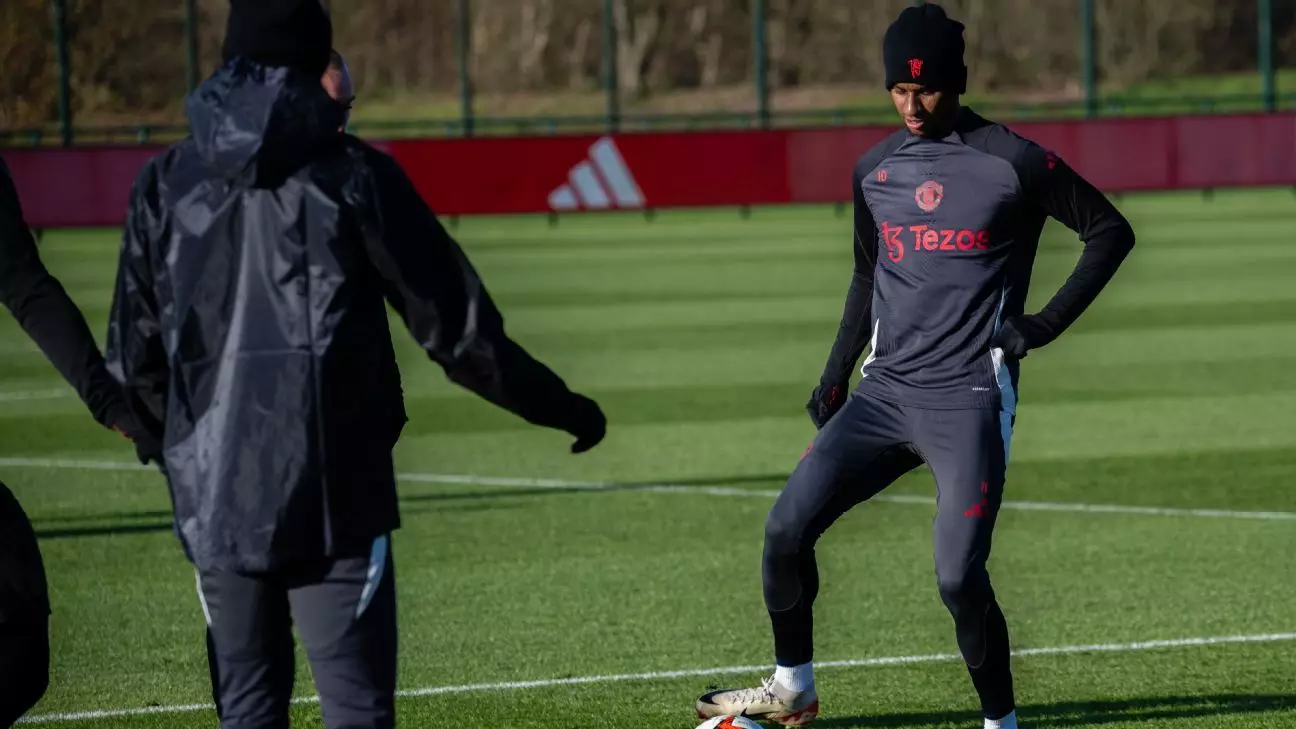The Marcus Rashford Dilemma: A Call for Accountability at Manchester United
As a lifelong football fan, the ups and downs of my favorite teams often feel personal. This time, I’m drawn to the unfolding drama at Manchester United, where Marcus Rashford finds himself at a crossroads. Head coach Ruben Amorim’s firm stance on Rashford’s performance has sparked conversation among fans and pundits alike. Watching this saga unfold reminds me of the passion and dedication that football demands from its players, and how these principles often mirror our own lives.
When I think of Rashford, I can’t help but recall his brilliant performances in past seasons that have brought joy to countless fans. Yet, like any sport, football is not just about past glories; it’s about maintaining a consistent standard of excellence. Amorim’s decision to sideline Rashford speaks volumes about the expectations that come with wearing the Manchester United jersey. As someone who loves seeing athletes thrive under pressure, I find this approach both challenging and necessary.
Key Takeaways
- Ruben Amorim emphasizes performance over public perception in managing Marcus Rashford.
- The focus on accountability highlights the need for consistent effort from all players.
- This situation underscores broader cultural shifts within Manchester United.
The Importance of Accountability
At the heart of this dilemma is Amorim’s unwavering commitment to holding his players accountable. In recent weeks, Rashford’s absence from key matches against formidable opponents like Manchester City and Tottenham has been a talking point. Amorim’s decision stems from a desire to maintain high standards rather than succumbing to external pressures. This moment is pivotal not just for Rashford but for the entire team, as it represents a shift toward a culture where performance truly matters.

While headlines buzz with Rashford’s potential departure from the club, Amorim remains focused on what’s happening on the pitch. He places a premium on consistency and commitment in training sessions. It’s a reminder that even celebrated athletes must continually prove their worth. The balance between a player’s media persona and their professional duties is delicate, yet crucial. This scenario illustrates how fame does not exempt one from the rigors of hard work or accountability.
Cultivating a Culture of Hard Work
Amorim’s philosophy that talent alone does not guarantee success is an essential lesson for both players and fans. His call for Rashford to engage more with team morale during tough times reflects his efforts to instill resilience within the squad. Manchester United is navigating through one of its most challenging periods. Therefore, fostering a collective sense of responsibility is paramount. It’s about everyone pulling together to ensure the club can weather this storm.
The media frenzy surrounding Rashford’s situation could easily distract from the team’s goals. However, Amorim’s steadfastness in managing these narratives demonstrates his ability to prioritize team dynamics over individual stories. By establishing clear communication between management and players, Amorim reinforces the importance of unity within the squad. In today’s football world, where media can be overwhelming, maintaining focus on core objectives is crucial for success.
The Road Ahead
The upcoming match against Wolverhampton Wanderers on Boxing Day looms large for both Rashford and Manchester United. The pressure mounts as fans speculate whether Rashford will rise to meet Amorim’s expectations. This situation serves as a microcosm of larger changes happening within the club. By emphasizing accountability and performance, Amorim is shaping not only Rashford’s future but also setting a precedent for others in the squad.

Ultimately, whether Rashford earns his spot back hinges on his willingness to adapt and embrace these new standards. The stakes are high; what transpires in the coming weeks will be telling for both player and club alike. Yet one thing remains clear: this journey demands perseverance and dedication—qualities that resonate far beyond the football field.
Final Thoughts
In many ways, what we’re witnessing at Manchester United transcends sport—it’s about personal growth and resilience in face of adversity. For fans like me who cherish watching their teams triumph against odds, this narrative offers hope that accountability leads to progress. As we watch this story unfold, let it remind us all of the power of persistence and teamwork in achieving our goals.
Marcus Rashford Manchester United Ruben Amorim football accountability


Leave a Reply